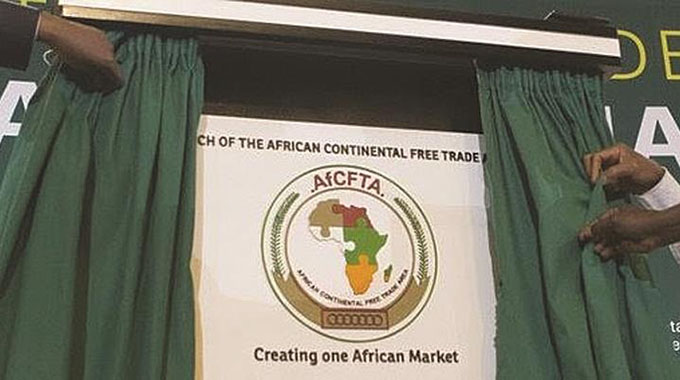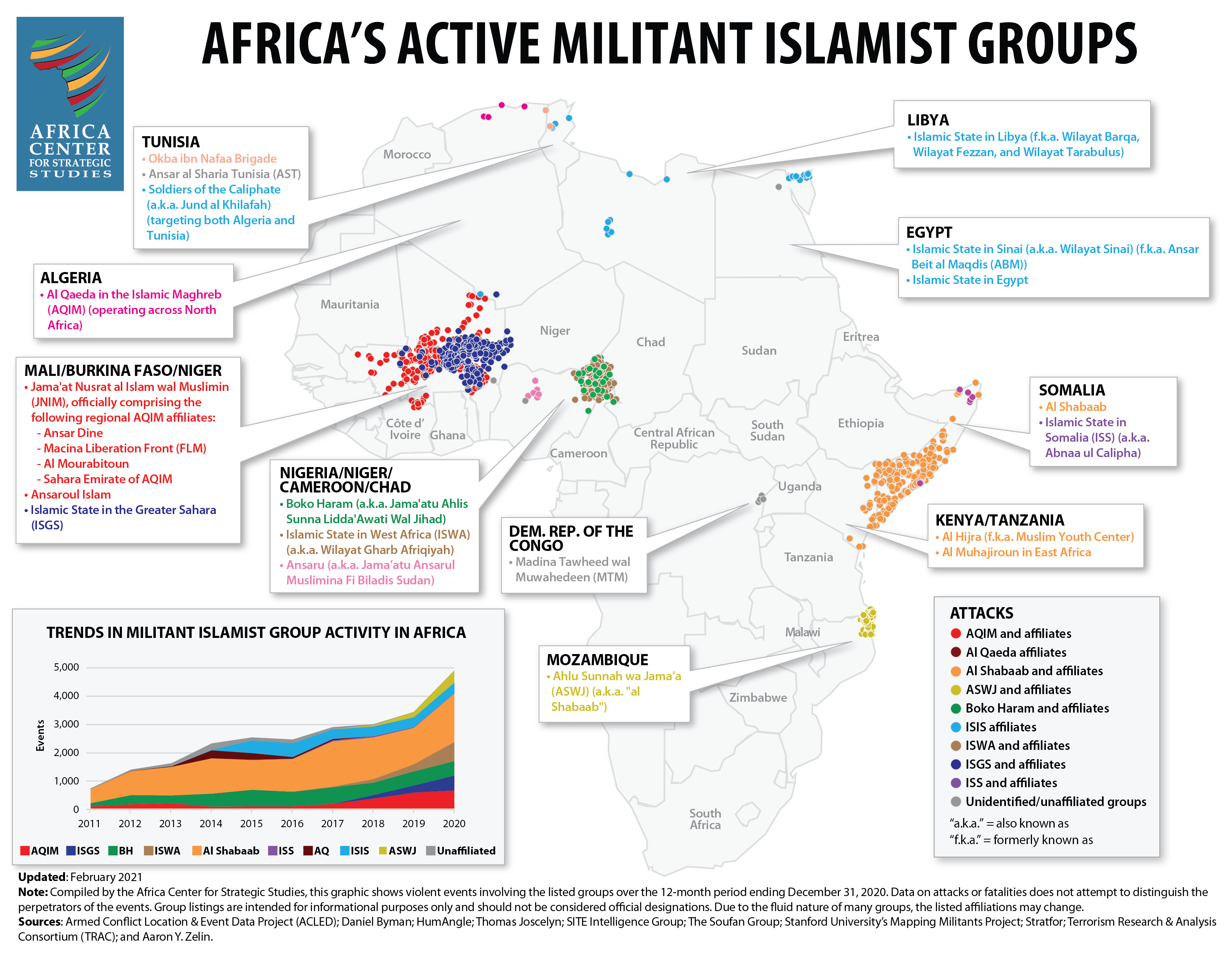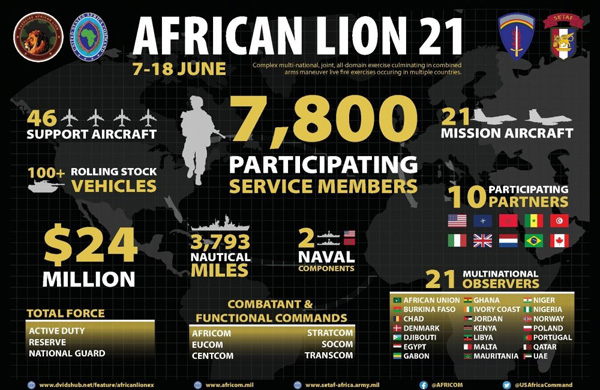Since 1963, Africa has undergone tremendous social change and political re-awakenings where in 2021 there are 55 member-states within the AU with only one, the Western Sahara, lacking national independence.
Africa Day for this year was called under the theme “Arts, Culture and Heritage: Levers for Building the Africa We Want.” The resurrection and enhancement of the African Personality is essential in the efforts to realize a better standard of living based upon the interests of the majority of workers, farmers, women and youth within the AU region.
Yet the AU region is by no means free of the clutches of imperialism. The current COVID-19 pandemic has exposed the vulnerabilities of the 1.3 billion people on a continent which remains dependent upon former colonial and present neo-colonial powers that drain the economic resources found in such abundance.
Similar to the situations in the Caribbean, Central America, South America and large areas of the Asia-Pacific geo-political regions, the AU member-states along with Saharawi Arab Democratic Republic (SADR), the provisional government of the Western Sahara which is recognized also by the United Nations, continues to struggle for genuine liberation and sovereignty. The Western Sahara was conceded to the Kingdom of Morocco in 1975 after the departure of colonial Spain.
In an article written about the stance of the SADR and its politico-military wing, the Polisario Front, in relationship to Africa liberation, it says:
“The Ministry of Foreign Affairs (MFA) affirmed today that the ‘declaration of the leaders of independent African countries at the beginning of the sixties of the last century on the constitution of a continental organization has the objective of promoting and supporting the peoples of the continent who fight against colonialism and Apartheid ‘. In a statement made public on the occasion of the celebration of Africa Day, the Saharawi MF highlighted that ‘today we celebrate, like the other African peoples, the day on which Africa commemorates the 58th Anniversary of the founding of the Organization for African Unity, on May 25, 1963. The founding of this continental organization represented a strong reason that contributed to accelerating the independence processes in African countries and highlighted its unique character that framed its objectives and priorities in the fight for human rights, self-determination and independence’”.
Morocco and Spain are now involved in a diplomatic dispute due to the medical treatment of Polisario Front leader and President of the SADR, Brahim Ghali, for Covid-19 in a Spanish hospital. Morocco has expressed its opposition through official diplomatic channels with Spain.
In response to the anger of Rabat, the government has allowed the outmigration of thousands of people seeking entry into the Spanish controlled territories off the coast of Morocco. Most of the migrants, who come from Africa and West Asia, have been returned to Morocco soon after arriving in Spanish controlled territory.
The problem of migration is not exclusively centered in Morocco. Other North African states such as Libya and Tunisia have the same difficulties of being largely forced to detain migrants fleeing from the horrendous conditions which have their origins in imperialist militarism.
Large scale migration has been utilized by right-wing politicians in Europe to form parties which call for a total ban on those in need of asylum.
This same atmosphere prevails as well in the U.S. when the political landscape became even more polarized with the advent of the previous administration of President Donald Trump and the failure of the current presidency of Joe Biden to take bold initiatives aimed at lessening racial oppression.
Imperialism and Militarism in 21st Century Africa
The U.S. Africa Command (AFRICOM) was operationalized in February 2008 with its headquarters in Stuttgart, Germany. During 2007 and 2008, no African government was willing to accept offers by the then President George W. Bush to host the primary base of AFRICOM.
However, with the advent of Bush’s successor, President Barack Obama, AFRICOM was strengthened and enhanced. There is currently an operational base of AFRICOM in the strategically located Horn of Africa state of Djibouti which houses over 3,000 Pentagon troops.
An investigative report done by the South African-based Mail & Guardian in 2020 stated that:
“Although U.S. commandos operate on the African continent with the agreement of host governments, ordinary Africans are rarely told about the full extent of U.S. activities — nor offered a say in how and why Americans operate in their countries. Even basic information, like the sweep and scope of deployments by elite U.S. troops and clandestine combat by American commandos on the continent, is mostly unreported across Africa…. In 2019, U.S. Special Operations forces were deployed in 22 African countries: Algeria, Botswana, Burkina Faso, Cameroon, Cape Verde, Chad, Côte D’Ivoire, Djibouti, Egypt, Ethiopia, Ghana, Kenya, Libya, Madagascar, Mali, Mauritania, Niger, Nigeria, Senegal, Somalia, Tanzania and Tunisia.
This accounts for a significant proportion of U.S. Special Operations forces’ global activity: more than 14% of US commandos deployed overseas in 2019 were sent to Africa, the largest percentage of any region in the world except for the greater Middle East.”
Despite the interventions of AFRICOM for more than a decade, the security situation in many African states is far worse than in 2008. In Nigeria, an insurgency which began in 2009 in the northeast of Africa’s most populous state on the continent, has not been defeated. The current President Muhammadu Buhari, a former military general with ties to the U.S. Pentagon, has asked for the construction of an AFRICOM base in Nigeria.
Although Buhari declared while running for the presidency in 2015 that he would eliminate the threat of Boko Haram within six months, there are today other criminal groupings which have emerged causing instability through theft, murder, kidnappings for ransom and recruitment. During April, Buhari said he had requested from the U.S. Secretary of State Antony Blinken in a virtual meeting that:
“I asked the U.S. to consider re-locating the AFRICOM HQ from Germany to Africa — near the Theatre of Operation; against the backdrop of growing security challenges in West & Central Africa, Gulf of Guinea, Lake Chad region & the Sahel,” Buhari said in a Twitter post after the meeting.” (See
this)
Such a controversial request by a former military general now heading a government with, in excess, of 200 million residents, illustrates the degree to which neo-colonialism has penetrated the African continent. Nigeria due to police misconduct faced a national rebellion late last year where scores were killed and billions in property damages occurred. There was sharp criticism levelled against Buhari inside of Nigeria while many military experts in the U.S. believe that the relocation of AFRICOM headquarters to West Africa would be highly unlikely. Nonetheless, the desperation of U.S. imperialism in its competition with China and other rivals, cannot be ignored in its efforts to remain dominant militarily in Africa and internationally.
African Unification and Socialism Provides the Only Real Alternative to Neo-Colonialism
The present role of the national military structures in Africa has proved incapable of guaranteeing the material interests of the majority of working people, farmers, youth and women. These mass elements within African societies must be empowered before genuine development can be realized.
Development and regional security are inextricably linked. In Chad, Mali, Libya and other states, the military forces have been trained by the Pentagon, France, Great Britain and other NATO countries. Until there is a categorical break with these imperialist governments and their military institutions, genuine independence and sovereignty will remain elusive.
A continental-wide military high command is called for within the charter of the AU. However, the mandate for taking responsibility for the internal security of Africa is in essence a political question. This necessity will be achieved by a revolutionary movement that is region-wide and committed to the abolition of capitalism and imperialism along with the construction of socialism.
Dr. Kwame Nkrumah, the founder of the Convention People’s Party (CPP) and the architect of the modern state in Africa, spoke and wrote extensively against foreign economic and military intervention on the continent. One analyst of African affairs and the role of AFRICOM said of the Nkrumah legacy:
“Nkrumah addresses foreign military intervention directly and warns that ‘military aid … marks the last stage of neo-colonialism and its effect is self-destructive.’ Moreover, he argued that African unity would not be possible until the ‘defeat of neo-colonialism,’ and argued for an African High Command. While Nkrumah envisioned the African High Command to be led by Africans and directly oppose foreign meddling, at its core AFRICOM is American-devised and managed, leading us to believe that Nkrumah would in fact be vehemently opposed to the establishment of an AFRICOM headquarters in Accra, or anywhere on the continent.” (See
this)
These ideas are just as relevant if not more so in the 21st century as when Nkrumah articulated them during the period from the conclusion of World War II up until the time of his death in 1972. The AU member-states are at a critical juncture and the decisions made in the current period will determine the outcome of the struggle for the control of Africa, its people and resources.






